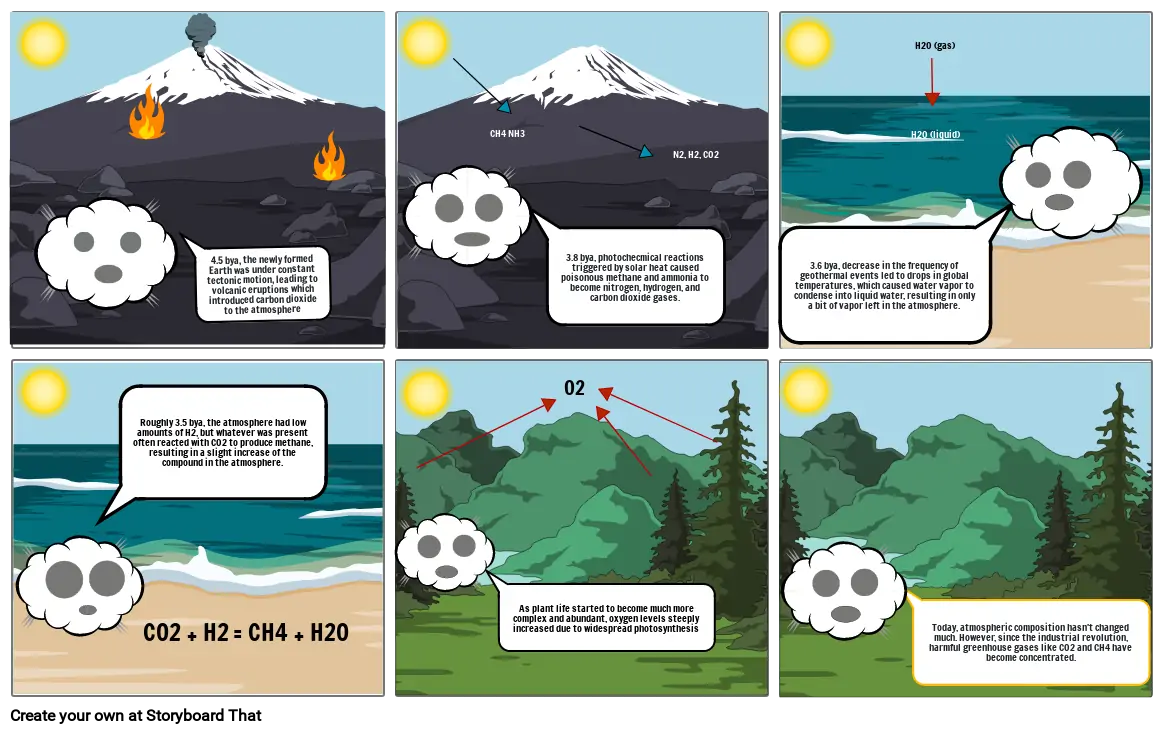
Storyboard Text
- 4.5 bya, the newly formed Earth was under constant tectonic motion, leading to volcanic eruptions which introduced carbon dioxide to the atmosphere
- CH4 NH3
- 3.8 bya, photochecmical reactions triggered by solar heat caused poisonous methane and ammonia to become nitrogen, hydrogen, and carbon dioxide gases.
- O2
- N2, H2, CO2
- 3.6 bya, decrease in the frequency of geothermal events led to drops in global temperatures, which caused water vapor to condense into liquid water, resulting in only a bit of vapor left in the atmosphere.
- H2O (gas)
- H2O (liquid)
- Roughly 3.5 bya, the atmosphere had low amounts of H2, but whatever was present often reacted with CO2 to produce methane, resulting in a slight increase of the compound in the atmosphere.
- CO2 + H2 = CH4 + H2O
- As plant life started to become much more complex and abundant, oxygen levels steeply increased due to widespread photosynthesis
- Today, atmospheric composition hasn't changed much. However, since the industrial revolution, harmful greenhouse gases like CO2 and CH4 have become concentrated.
Over 30 Million Storyboards Created

